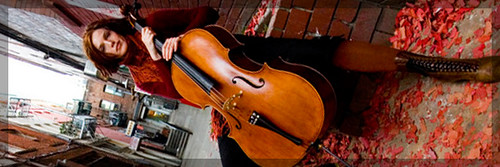 September 30, 2022
September 30, 2022 Don't Give Up: How To Thrive As a Musician With Chronic Pain

Image Source: Pexels
Being a musician is an enriching experience. Whether you pursue it as a career or as a hobby, it is an invaluable creative outlet and technical activity. However, you may find yourself experiencing challenges that disrupt your progress. One of the most common of these is chronic pain.
One study of professional musicians found that 66% of respondents reported experiencing chronic pain. While there can be various influencers of this, the outcome tends to be a reduced ability and joy in pursuing the craft. Yet, this doesn’t mean you should give up. There are options to mitigate these negative experiences effectively.
Let’s dive a little deeper into how to thrive as a musician with chronic pain.
Get to Know the Triggers
As with so many other areas of life, knowledge is a powerful tool. The more you can understand chronic pain, the better able you’re likely to be to manage it and pinpoint the right solutions. Remember that experiences of chronic pain can be relatively subjective. As such, your approach to learning needs to take into account both your personal perspectives as well as information from external sources.
One area that many people struggle with here is recognizing what influences their symptoms. Take some time to review the common contributors to chronic pain, including both lifestyle elements and illnesses. Excess weight can put additional pressure on joints, which can influence osteoarthritis. In some cases, poor posture can contribute to muscular strain and digestive issues. Compare these elements to your personal experiences. When you play your instrument, do you tend to have a stooped posture? Have you experienced traumatic injuries that impact your fingering technique in certain circumstances?
If you’re still unclear, it can be worth looking to key figures in your musical field that experience similar challenges to yours. Many top musicians have started to talk about their experiences. Max Weinberg — drummer for the E-Street Band — discovered his hand pain was not from drumming too hard but from drumming with poor technique. Searching out such anecdotes can point you in the right direction for information. However, it’s also worth reaching out within your musical circle. Many musicians face chronic pain issues and some of your connections may be able to share solutions.
Develop Tailored Practice Routines
The last thing you want is for your chronic pain to put a dent in your musical development. Therefore, once you have a good understanding of your triggers and symptoms, it’s important to develop practice routines that consider your pain. Take what you know about the condition and tailor your activities and schedule to both account for and better manage it.
This could include specific practice exercises to strengthen your body against the symptoms. In some cases, targeted physical training can relieve the pressure that triggers or exacerbates your pain. Many musicians utilize the Alexander Technique to gain a mindful awareness of the body. Some people find this helps them adopt healthier habits while enhancing their musicianship. If you’re a string musician, it may be helpful to review your technique to establish where you can reduce strain, alongside performing strength-building exercises.
However, it’s also vital not to overextend yourself during your tailored practice routines. Part of your approach here is to be aware of your limits and schedule around these. Indeed, if you’re taking lessons, you may find traveling to the practice itself to exacerbate elements of pain. Taking virtual lessons can provide you with the flexibility to navigate your symptoms while improving your skills. However, getting the most out of online classes still requires focus and dedication. Be fully engaged with the process and ensure you’re well prepared for your lessons. Make sure you have an environment both free of distractions and comfortable enough not to trigger pain symptoms early.
Identify Sources of Support
Living with chronic pain as a musician is a very personal challenge. However, this doesn’t mean you only need to rely on your personal reserves to navigate it. It’s vital to identify key sources of support that can help you through it. This is not just important for the physical experience, but also to maintain your mental wellness.
Firstly, it’s important to identify those in your circle that can be genuine figures of support. If you’re in a band or orchestra, open up to your colleagues about your experiences. Of course, you may gain some empathy and moral support here, but that’s not the only advantage. It also serves the practical purpose of being able to plan studio time and practice sessions to mitigate any negative effects.
Identifying key sources of treatment and therapy is also a vital support system. This doesn’t necessarily mean relying on medication alone. Physiotherapy, psychological counseling, and potentially alternative therapies may be helpful. Remember to plan for this if you’re going on tour in an unfamiliar location, too. Take the time beforehand to search for and note professionals and facilities you can utilize if you need them on the road. Remember that traveling for long periods may exacerbate your symptoms, too, so identify exercise facilities on your route.
Conclusion
Chronic pain can certainly be a difficult hurdle to overcome as a musician. It’s important to gain a better understanding of both the common causes of pain and those specific to your circumstances. You can then develop more mindful practice routines and seek out appropriate treatment resources. With some knowledge, focus, and planning, you can ensure you thrive as a musician in spite of these health challenges.
Don't Give Up: How To Thrive As a Musician With Chronic Pain









